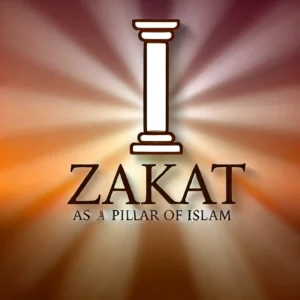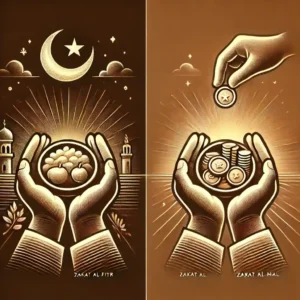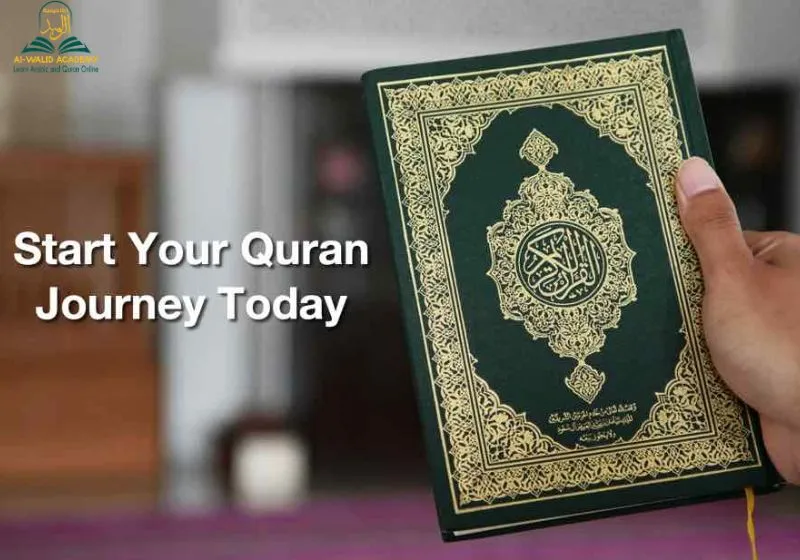Zakat, one of the five pillars of Islam, is a fundamental concept that holds immense spiritual and social significance. It represents the practice of giving a portion of one’s wealth to those in need, thus purifying the giver’s soul and fostering a sense of equality within the community. In this article, we will explore zakat as a pillar of Islam, its purpose, rules, and the wisdom behind it, while addressing various practical aspects of its calculation and distribution.
What is the Concept of Zakat in Islam?
In Islam, zakat means “purification” or “growth,” and it refers to the mandatory charitable contribution that Muslims are required to give from their wealth. Zakat purifies wealth and promotes social justice by redistributing a portion of it to help those who are less fortunate. By paying zakat, Muslims acknowledge that wealth is a blessing from Allah, and they must share it with others. The concept of zakat as a pillar of Islam emphasizes the importance of helping others and fostering a strong, compassionate community.
Why is Zakat a Pillar of Islam?

Zakat is one of the five pillars of Islam, which are the foundational acts of worship that every Muslim must observe. The inclusion of zakat as a pillar of Islam highlights its essential role in maintaining social and economic balance within the Muslim community. Zakat encourages wealth redistribution, promotes social welfare, and strengthens the bonds between Muslims by ensuring that no one is left behind. By fulfilling this obligation, Muslims demonstrate their obedience to Allah and their commitment to social justice.
What is the Goal of Zakat?

The goal of zakat as a pillar of Islam is both spiritual and social, making it an essential practice in Islam. It serves to purify a Muslim’s wealth and soul, while also addressing the economic disparities in society.
Spiritual Purification
One of the primary goals of zakat is to cleanse the soul from greed and materialism. By giving a portion of one’s wealth to those in need, Muslims are reminded that their wealth is a blessing from Allah, and they must share it. This act of giving helps develop a sense of gratitude and humility, allowing Muslims to purify their hearts from attachment to worldly possessions.
Social Responsibility
In addition to spiritual benefits, zakat has a profound social impact. The funds collected through zakat help alleviate poverty by providing financial assistance to those who are struggling. This includes the poor, orphans, and those burdened by debt. The goal is to ensure that everyone has access to basic needs like food, shelter, and healthcare.
Building a Just Society
By promoting the redistribution of wealth, zakat helps to create a more equitable society. It reduces the gap between the rich and the poor, fostering a sense of unity and solidarity within the Muslim community. The ultimate aim of zakat as a pillar of Islam is to establish a society where resources are shared fairly, and no one is left behind.
Encouraging Generosity
Another significant goal of zakat is to cultivate a spirit of generosity and empathy among Muslims. When individuals regularly give to those in need, they become more compassionate and aware of the struggles of others. This generosity extends beyond zakat, encouraging Muslims to give additional charity (sadaqah) throughout the year.
In summary, zakat as a pillar of Islam purifies both wealth and the soul while promoting social justice and generosity. It plays a critical role in maintaining a balanced and compassionate community.
Why Do Muslims Need Zakat?
Muslims need zakat to fulfill their religious obligation and to ensure the well-being of their community. By giving zakat, Muslims strengthen their relationship with Allah and contribute to the social and economic health of their society. It is not only a means of financial support for those in need but also a way to remind Muslims of the temporary nature of worldly wealth and the importance of generosity and compassion.
What is the Wisdom Behind Zakat?
The wisdom behind zakat as a pillar of Islam lies in its ability to purify both the giver’s wealth and heart. It promotes humility, reduces the gap between rich and poor, and encourages a sense of solidarity within the Muslim community. Zakat helps to prevent hoarding of wealth, ensures that everyone has access to essential resources, and reminds Muslims of their duty to care for their fellow believers.
How Do You Calculate Zakat?

Calculating zakat accurately is crucial for fulfilling this important pillar of Islam. The process requires a clear understanding of what wealth is subject to zakat, the applicable rate, and the conditions for payment. Here’s a step-by-step guide to help you calculate zakat correctly.
Step 1: Determine What Wealth is Subject to Zakat
Zakat only applies to specific categories of wealth. Zakat is only due on specific types of wealth that have been in your possession for at least one full lunar year. The main categories of wealth include:
- Cash and Savings: Any money held in bank accounts, at home, or in any form of savings.
- Investments: Stocks, bonds, and other financial assets that generate income.
- Business Assets: Merchandise and products meant for sale (if you run a business), minus the operating expenses and debts.
- Gold and Silver: Any gold and silver that you own, whether in the form of jewelry or other assets.
- Rentals and Property: Rental income or property that is rented out for profit.
Zakat is not due on personal belongings such as your home, car, clothing, or everyday household items.
Step 2: Calculate the Nisab (Minimum Threshold)
Before calculating zakat, you need to ensure that your wealth exceeds the nisab—the minimum amount of wealth required to be eligible for zakat. The nisab is based on the value of 85 grams of gold or 595 grams of silver. You can choose to base your nisab on the current market value of either gold or silver.
If your total wealth exceeds this threshold, you are obligated to pay zakat. If your wealth is below the nisab, you are not required to pay zakat for that year.
Step 3: Calculate 2.5% of Your Total Wealth
Once you’ve determined that your wealth exceeds the nisab, calculate 2.5% of your total wealth. This is the standard zakat rate for most types of wealth, including cash, investments, and gold. For example, if you have $10,000 in savings and investments, you would pay 2.5% of $10,000, which is $250.
Step 4: Deduct Liabilities and Debts
Before finalizing your zakat calculation, you may deduct any immediate debts or liabilities from your wealth. This includes unpaid bills, loans, or any financial obligations that you are responsible for. The remaining amount is what you use to calculate your zakat.
For instance, if you have $10,000 in assets but owe $2,000 in debt, your zakat will be calculated at $8,000.
Step 5: Pay Zakat to Eligible Recipients
After calculating your zakat, the next step is to distribute it to those who are eligible. Zakat can be given to several categories of people, including:
- The poor and needy
- Those in debt
- Orphans
- Travelers in need
- Those working to collect and distribute zakat
It is essential to ensure that your zakat goes to the correct recipients as outlined in Islamic teachings.
Step 6: Review and Update Annually
Zakat is calculated and paid annually, so it’s important to review your financial situation each year to determine the exact amount of zakat owed. Any significant changes in your wealth or liabilities should be taken into account when calculating zakat for the following year.
What Are the Rules of Zakat?
The rules of zakat stipulate that it is obligatory for every adult Muslim who meets the nisab (minimum amount of wealth required) to give zakat. The wealth must be fully owned by the individual, and it should be held for a full lunar year. Zakat can only be given to specific categories of recipients, such as the poor, orphans, and those in debt. Zakat cannot be given to immediate family members or used for personal gain.
Difference Between Zakat al-Fitr and Zakat al-Mal

Zakat in Islam is divided into two primary categories: Zakat al-Fitr and Zakat al-Mal, both of which serve to purify the wealth of Muslims and support those in need. However, they differ in timing, purpose, and method of calculation.
Zakat al-Fitr
Zakat al-Fitr is a mandatory charitable contribution that all Muslims must give before the end of Ramadan. It is a relatively small, fixed amount that must be paid by every Muslim, regardless of their financial status. The purpose of Zakat al-Fitr is to purify the fast of Ramadan, making up for any shortcomings or mistakes made during the fasting period. It also ensures that the less fortunate can participate in the celebrations of Eid al-Fitr by having the means to meet their basic needs.
- When to Pay: Zakat al-Fitr must be paid before the Eid prayer, at the end of Ramadan.
- Who Must Pay: Every Muslim, including dependents like children, is required to give Zakat al-Fitr.
- Amount: The amount is based on the local cost of staple food items such as wheat or rice, typically enough to feed one person for a day.
Zakat al-Mal
Zakat al-Mal, on the other hand, is an annual charitable payment required of Muslims whose wealth exceeds the nisab (minimum threshold). It is calculated as 2.5% of a person’s savings and wealth, which includes cash, investments, gold, and other assets that have been held for at least one lunar year. Zakat al-Mal plays a crucial role in wealth redistribution and helps alleviate poverty in the Muslim community.
- When to Pay: Zakat al-Mal is paid once a year, typically when a full lunar year has passed since the wealth exceeded the nisab.
- Who Must Pay: Only Muslims who possess wealth that exceeds the nisab are obligated to pay Zakat al-Mal.
- Amount: The amount is calculated as 2.5% of eligible wealth, including savings, investments, and other assets.
Key Differences
- Timing: Zakat al-Fitr is paid at the end of Ramadan, while Zakat al-Mal is an annual obligation.
- Amount: Zakat al-Fitr is a fixed amount that does not depend on one’s wealth, whereas Zakat al-Mal is calculated based on a percentage (2.5%) of one’s total wealth.
- Purpose: Zakat al-Fitr purifies the fast and allows all Muslims to celebrate Eid, while Zakat al-Mal purifies wealth and helps reduce poverty throughout the year.
Both forms of zakat emphasize social welfare, but they are given under different circumstances and serve distinct purposes in the life of a Muslim. By fulfilling both, Muslims contribute to the well-being of their community while purifying themselves spiritually.
What Are the Three Types of Zakat?
The three main types of zakat are:
- Zakat al-Mal: The general annual zakat paid on wealth and assets.
- Zakat al-Fitr: A smaller, obligatory charity paid at the end of Ramadan.
3-Voluntary Zakat (Sadaqah)
While zakat is a mandatory obligation for Muslims whose wealth exceeds a certain threshold, sadaqah represents voluntary charity that Muslims are encouraged to give at any time, regardless of wealth or financial status. Unlike zakat, which has specific rules and requirements, sadaqah is completely voluntary and can be given in any amount, at any time, and to anyone in need.
What is Sadaqah?
Sadaqah is derived from the Arabic word “sidq,” meaning truth or sincerity. It refers to any act of charity given with the intention of seeking Allah’s pleasure. While it is most commonly thought of as financial charity, sadaqah can take many forms, including acts of kindness, offering a helping hand, or even a simple smile. In Islam, any good deed done for the sake of Allah is considered sadaqah.
The Importance of Sadaqah
Giving sadaqah is highly encouraged in Islam as it helps to foster a spirit of generosity and compassion within the Muslim community. While zakat is obligatory for eligible Muslims, sadaqah allows everyone, regardless of their financial standing, to contribute to the well-being of others. It helps to alleviate poverty, support those in need, and build stronger bonds within society.
- Spiritual Benefits: Sadaqah is not only an act of kindness but also a way to purify one’s soul. It serves as a means of expiation for sins and brings countless rewards, both in this life and the hereafter. The Prophet Muhammad (PBUH) said, “Charity extinguishes sin, just as water extinguishes fire.”
- Social Impact: By giving sadaqah, Muslims contribute to the welfare of their community, helping to support the poor, provide education, and assisting those who are struggling. It promotes social harmony and reduces the economic disparity between individuals.
Types of Sadaqah

Sadaqah can be offered in multiple ways, such as:
- Monetary Contributions: Donating money to those in need, either directly or through charitable organizations.
- Non-Monetary Contributions: Offering food, clothing, or shelter to those in need, or providing free services to help others.
- Acts of Kindness: Offering emotional support, helping someone with a task, or simply smiling at others.
- Knowledge: Teaching or sharing knowledge with others can also be considered a form of sadaqah, as it benefits the community and brings continuous rewards.
Difference Between Zakat and Sadaqah
Although zakat and sadaqah are both forms of charity, they differ in several key aspects:
- Obligation: Zakat is a mandatory payment for those who meet the financial threshold, whereas sadaqah is voluntary and encouraged for all Muslims, regardless of wealth.
- Amount: Zakat is fixed at 2.5% of an individual’s wealth, while sadaqah has no set amount and can be given in any quantity.
- Recipients: Zakat has specific categories of eligible recipients, while sadaqah can be given to anyone in need, including non-Muslims.
Continuous Sadaqah (Sadaqah Jariyah)
One special form of sadaqah is sadaqah jariyah, or continuous charity. This refers to charitable acts that continue to benefit others long after the initial act has been performed. Examples of sadaqah jariyah include building a well, donating to a mosque, or supporting educational initiatives. The rewards for sadaqah jariyah continue for as long as the benefit remains, even after the person has passed away.
Who Cannot Receive Zakat?
Zakat cannot be given to immediate family members, such as parents, children, or spouses, as it is their duty to support each other. Additionally, zakat cannot be given to non-Muslims or individuals who are financially stable. The recipients must fall within the categories specified in Islamic teachings, such as the poor, the needy, or those in debt.
What is the Intention of Zakat?
The intention (niyyah) behind zakat is crucial. Muslims must make the intention to give zakat for the sake of Allah and to fulfill their religious duty. Without the correct intention, the act of giving does not carry the same spiritual significance. This intention purifies the giver’s heart and connects them more deeply with their faith.
Can Zakat Be Given to Non-Muslims?

In Islamic teachings, zakat is a form of obligatory charity that is primarily intended for Muslims in need. The Quran and Hadith outline specific categories of people who are eligible to receive zakat, and most of these categories refer to Muslims, such as the poor, the needy, and those in debt. However, scholars of Islamic jurisprudence have explored whether zakat can be given to non-Muslims under certain circumstances, and opinions on this matter vary.
General Ruling on Zakat
According to the majority of scholars, zakat is meant to support fellow Muslims and strengthen the Muslim community (ummah). The primary goal of zakat as a pillar of Islam is to alleviate poverty within the Muslim society, ensuring that no Muslim is left without basic necessities. The Quran, in Surah At-Tawbah (9:60), specifies eight categories of recipients, including the poor, the needy, and those who are employed to collect zakat. These categories are generally understood to apply to Muslims.
Sadaqah for Non-Muslims
While zakat is generally restricted to Muslims, sadaqah (voluntary charity) has a broader scope. Muslims are encouraged to give sadaqah to anyone in need, regardless of their faith. The Prophet Muhammad (PBUH) emphasized the importance of helping all people, including non-Muslims, as an expression of compassion and humanity. Sadaqah can be given to support the well-being of non-Muslims, contribute to peaceful relations, and foster goodwill in diverse communities.
Exceptions in Zakat for Non-Muslims
Although the general rule is that zakat is for Muslims, some scholars argue that there are exceptions where zakat can be given to non-Muslims if it serves a greater benefit to society. For example, under the category of “those whose hearts are to be reconciled” (المؤلفة قلوبهم), zakat can be given to non-Muslims who are close to embracing Islam or who may benefit the Muslim community through positive relations. This category is recognized in classical Islamic jurisprudence and has been applied in cases where giving zakat to non-Muslims serves to promote harmony or to support the welfare of the larger community.
Another exception arises in situations where non-Muslims live under the protection of a Muslim state (known as dhimmis). Some scholars have permitted zakat to be used to support these individuals, particularly in times of widespread hardship or calamity, as a gesture of solidarity and compassion.
Scholarly Debate
There is ongoing scholarly debate about whether the exceptions for giving zakat to non-Muslims are applicable in modern contexts. While some scholars maintain a strict interpretation that limits zakat to Muslims only, others suggest that in today’s interconnected and diverse societies, there may be greater room for flexibility. However, this view is not universally accepted, and many scholars continue to advocate for zakat’s primary purpose of supporting the Muslim community.
Read About: Can Anyone Be a Muslim
Why Do Muslims Celebrate Zakat?
Muslims celebrate zakat as an act of worship that brings them closer to Allah and their community. It is a means of expressing gratitude for the blessings of wealth and a way to ensure social justice. By giving zakat, Muslims fulfill one of the core pillars of their faith, fostering a sense of solidarity and compassion.
At Al-Walid Academy, we offer specialized courses to help Muslims deepen their understanding of Islamic teachings, including zakat. Our courses include:
- Quran Memorizing Course: Learn to memorize the Quran with precision and fluency.
- Quran Reading Course: Improve your Quran reading skills and comprehension.
- Islamic Studies Course: Gain deeper insights into Islamic principles and practices, including the rules of zakat.
- Arabic Language Course: Master the Arabic language to better understand Islamic texts.
- Arabic Foundation Course: Build a strong foundation in Arabic, tailored for non-native speakers.
Join us at Al-Walid Academy to enhance your Islamic knowledge and strengthen your connection with your faith!





